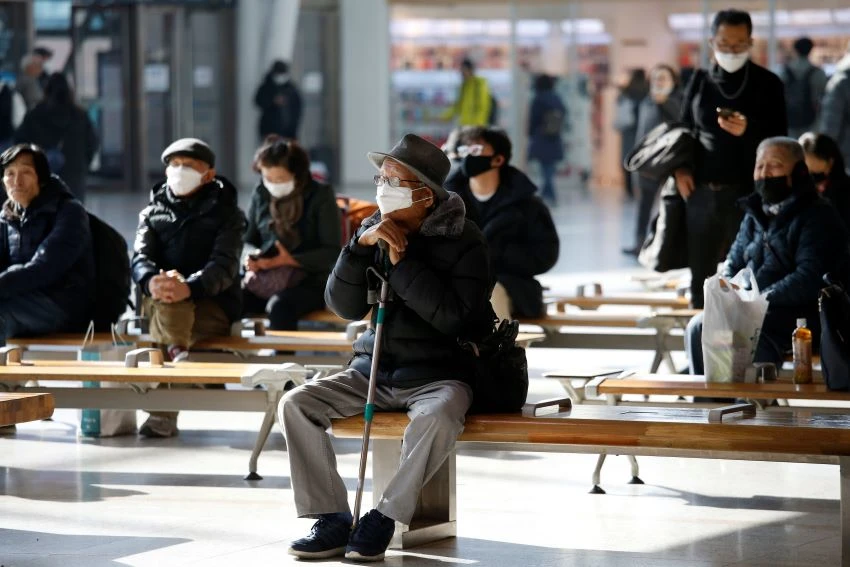
As the outbreak of the new coronavirus spreads beyond China, the world's leading economies face great uncertainty. Equity markets plunged as the number of infections soared in countries such as South Korea and Italy. Analysts worry that further declines in stock prices could pose a drag on the real economy.
Countries need to act promptly and flexibly with a cautious eye on the economic impacts while protecting public health by containing the outbreak.
Finance ministers and central bankers from the Group of 20 major economies, after concluding a two-day meeting in Riyadh on Feb. 23, issued a communique affirming that they "remain committed to use all available policy tools to achieve strong, sustainable, balanced and inclusive growth, and safeguard against downside risks."
But the economic impact of the deadly virus is still unclear at the moment. In order to devise appropriate measures policymakers need to grasp the scope of the challenge.
The International Monetary Fund's baseline scenario for the coronavirus outbreak puts China's economic growth for 2020 at 5.6%, down 0.4 percentage point from the fund's January estimate, while global growth would drop by 0.1 point, Managing Director Kristalina Georgieva said.
This scenario assumes that business in China returns to normal during the April-June quarter. A more protracted outbreak would create further disruption and put heavier downward pressure on corporate earnings.
"I think we're going to need another three or four weeks to see how the virus reacts" before the economic impact can be predicted, U.S. Treasury Secretary Steven Mnuchin told CNBC. "I think we're at a point where it's too early to either say this is very concerning or it's not concerning."
If the epidemic persists, the damage is likely to extend far beyond China. Japan could suffer a blow to inbound tourism, while other Asian countries would face risks from supply chain delays. Even the U.S., in the midst of a yearslong economic expansion, is unlikely to escape unscathed.
Information from China is critical to understanding the extent of the outbreak. Beijing did not send a cabinet-level official to the Riyadh meeting, but instead had its ambassador to Saudi Arabia represent the seat.
"I don't know how real China's figures are," Japanese Finance Minister Taro Aso said, referring to Beijing's reported coronavirus case numbers. China should address such doubts and provide appropriate disclosures of accurate data.
G-20 members softened the economic blow from the global financial crisis of 2008 with coordinated fiscal and monetary stimulus. But the coronavirus outbreak is not a purely economic problem, and coordination is more complicated in such a fluid situation.
In the 2008 crisis, China played a central role in shoring up the world economy with its massive stimulus package. Now, monetary policy in Japan, the U.S. and Europe is nearing its limits, and G-20 members have little fiscal room to maneuver.
The outbreak has shown that in a globalized economy, pandemics present a major risk akin to climate change. This is a test of how well countries are able to coordinate their efforts in the face of a new challenge.




















